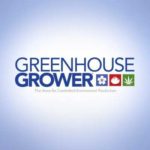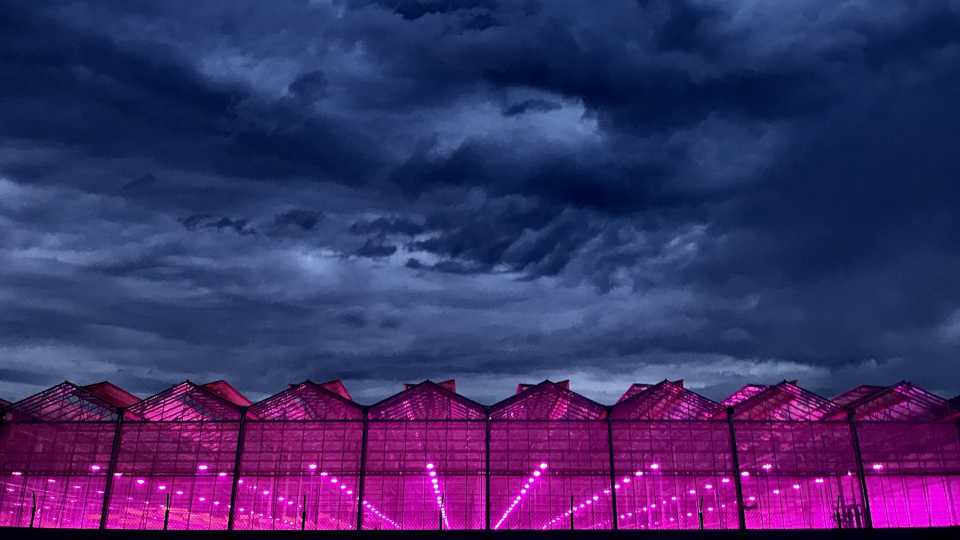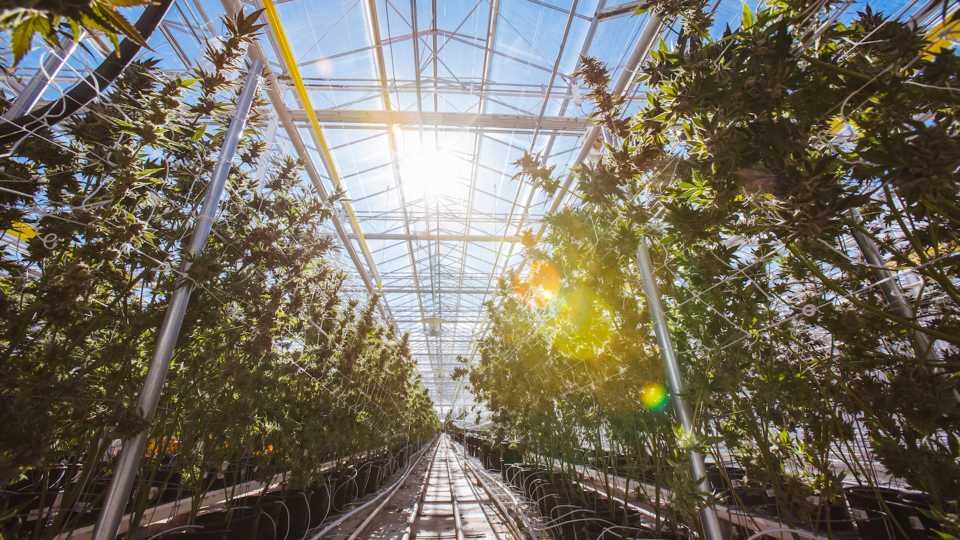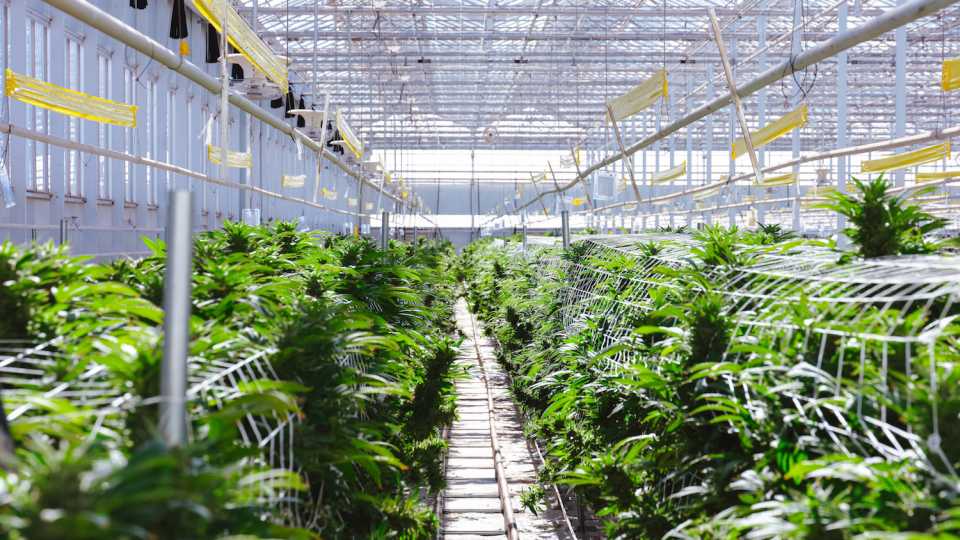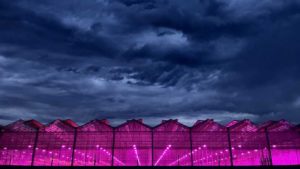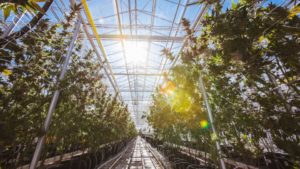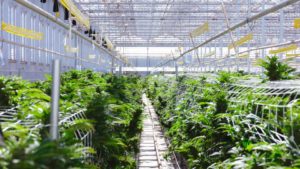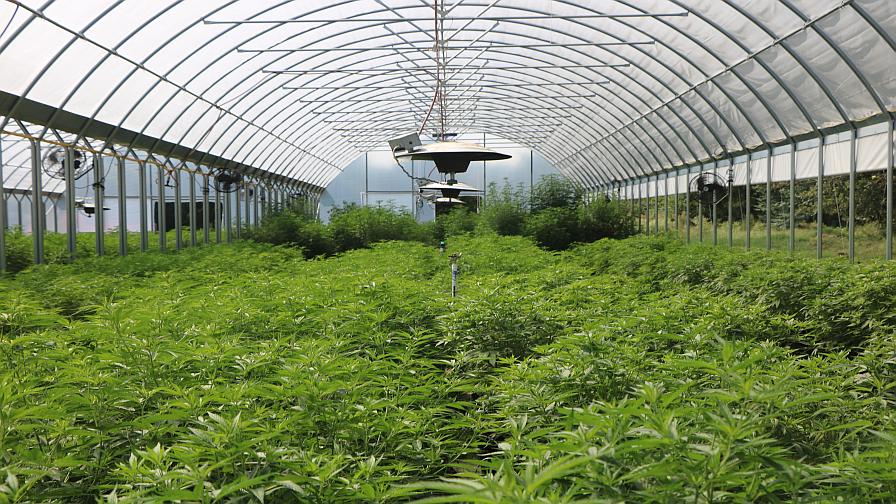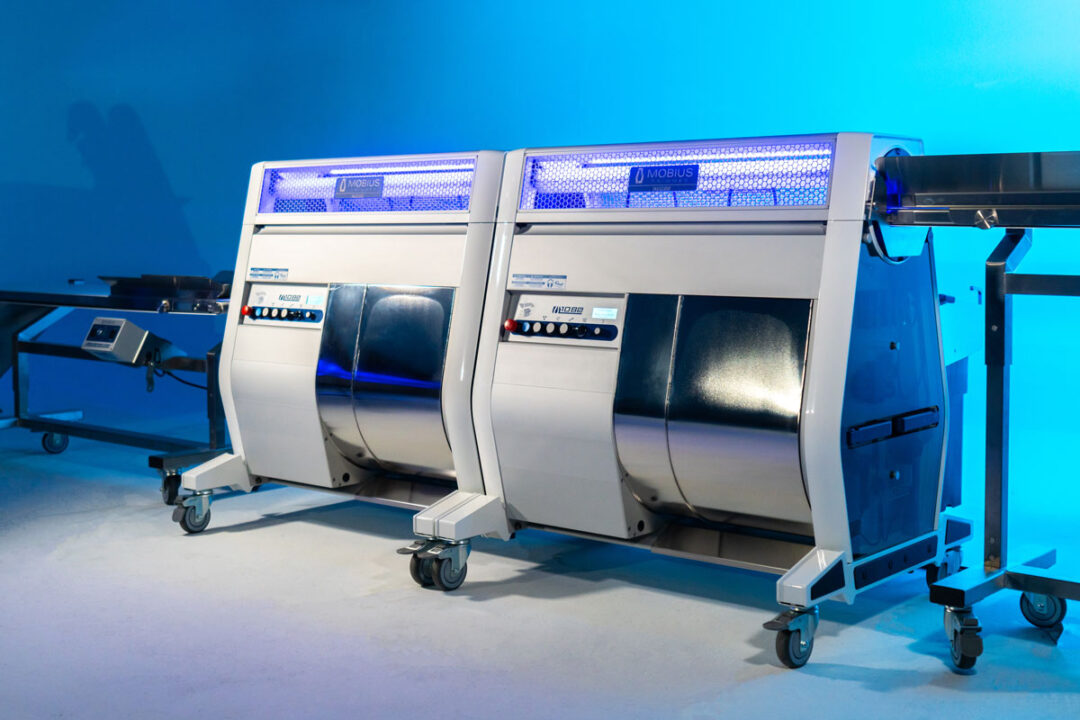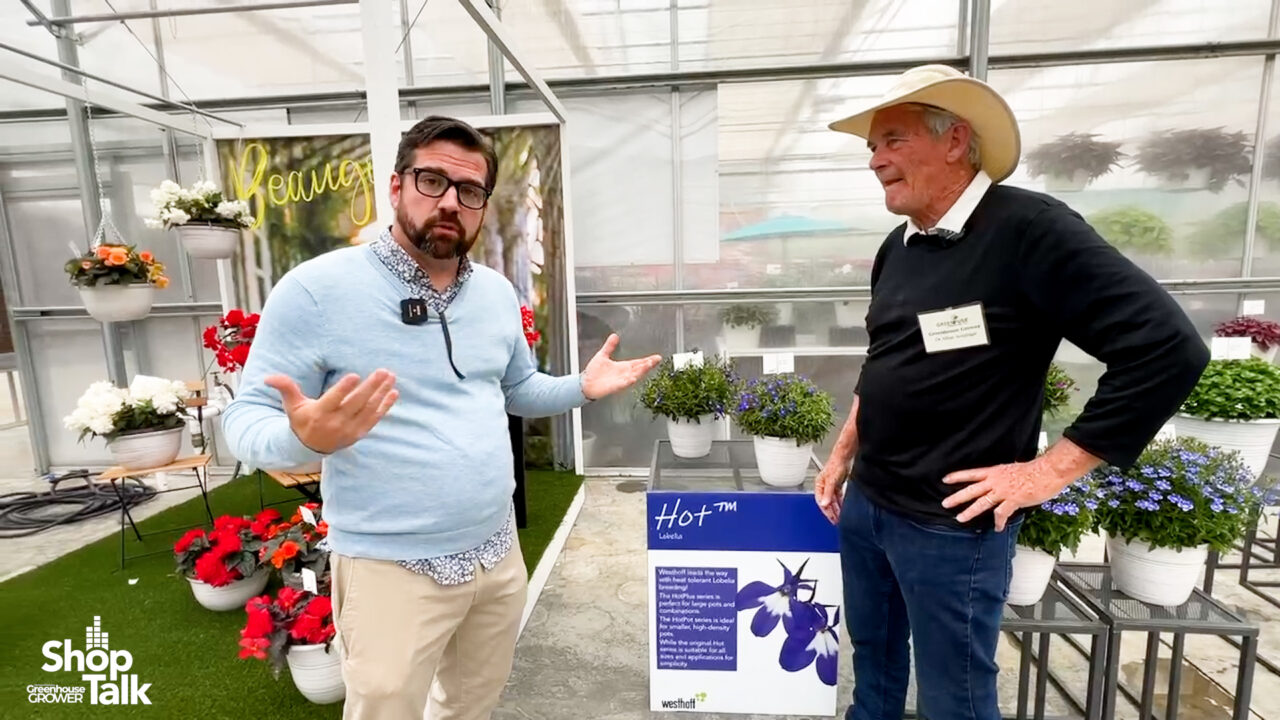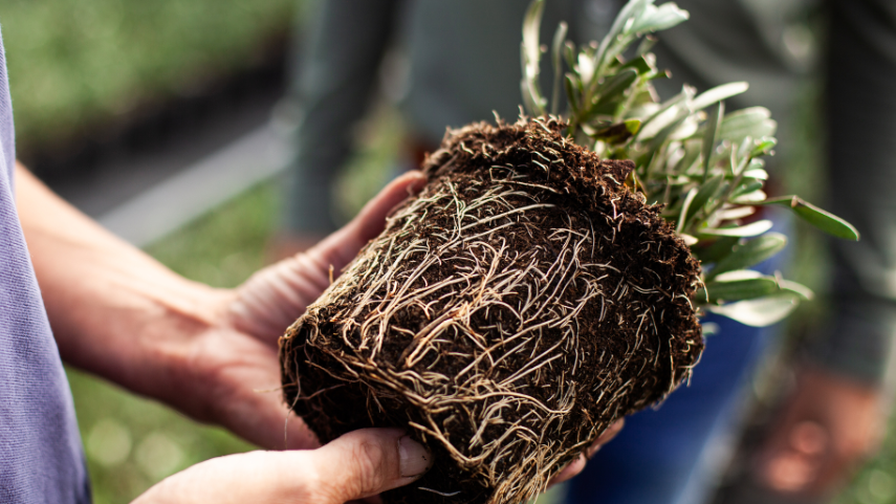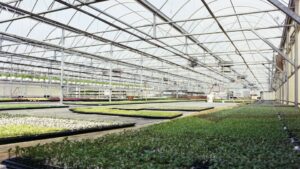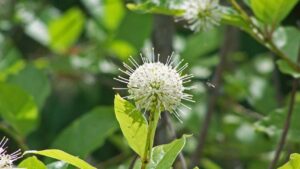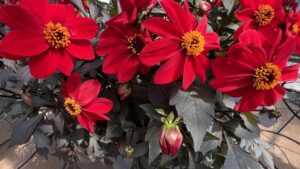A Look Inside Copperstate Farms, the Largest Cannabis Greenhouse in the U.S.
Tucked amid the snow-capped peaks hovering ominously over the heather green and red parched landscape, just shy of four hours northeast of the Phoenix metro area, resides the largest cannabis greenhouse in the U.S.
Weighing in at a behemoth 40-acres under glass, the team at Copperstate Farms (Snowflake, AZ) is perpetually harvesting proof that high-quality, premium cannabis can and is being produced at scale, under glass, in a commercial greenhouse.
“We believe with the right infrastructure, the right processes, and the right beneficial ingredients paired with a strong Integrated Pest Management Program (IPM) , we can create greenhouse grows equal to fully controlled environment indoor production,” Pankaj Talwar, the group’s relatively new CEO says. “Long term, we believe growing in this fashion is more sustainable, and that the sun is the best light source to allow the plant to express its fullest potential.”
From Tomatoes and Cucumbers to Cannabis
The Copperstate Farms site in Snowflake carries an interesting history of its own. Talwar recalls the facility was originally a large commercial hydroponic tomato greenhouse, built by a Canadian couple who had just won $22.5 million in the Canadian lottery in 1998 and decided to invest in a horticulture operation south of the border.
It turns out, those first owners knew exactly what they were doing when they decided to toss up a giant Dutch Venlo-greenhouse, all those decades ago. From Eurofresh cucumbers to NatureSweet cherry tomatoes shipped all over the world, to top-shelf, sun-grown cannabis, the site in Snowflake has proven ideal harvest after harvest.
“At 5,600 feet of elevation and more than 300 days of sunshine, the intensity and duration of the sun is optimal for growing in the greenhouse,” Talwar says. “The quality of sunshine each plant receives — we are blessed with a tremendous amount of it each year. And the groundwater here is extremely clean and inexpensive. All those factors come together perfectly here in Snowflake.”
Fast forward to 2012. Voters had just approved the state’s first medical cannabis law. Copperstate’s founders, Fife Symington and Scott Barker, knew they wanted to produce at large-scale, in a greenhouse, and they knew the perfect property. After finalizing a deal with NatureSweet, a San-Antonio-based tomato grower, packager, and seller of produce, large-scale retrofitting of the original structure at Snowflake ensued, and soon enough North America’s largest greenhouse cannabis outfit was up and running in the sleepy desert mountain town.
Big Getting Bigger
“We’re still growing right now, as we speak,” Talwar says, not a hint of irony in his voice either, because Copperstate is literally always growing. “We’re in Phase Two of our site expansion plans, which will come online in June and features a retrofit of another 10 acres conversion from produce to cannabis. With that expansion, we’ll get more than three times the amount of flower and biomass coming out of our facility.”
In addition to the greenhouse, Copperstate has invested in an on-site extraction lab, where its extraction techs turn raw plant material into formulated products like cannabis concentrates and branded vape cartridges that the vertically integrated company can distribute to its two retail dispensaries in the Phoenix metro area as well as its array of wholesale customers.
“It’s a tremendous advantage for us, because it allows us to be a lot closer to our patients,” Talwar says of vertical integration, adding that one of the benefits for management comes from the flow of unvarnished feedback on its products directly from the bud tenders, or patient advocates, working in the dispensaries to the Farm. “They tell us what is working, what’s selling and resonating with our patients (the consumers), and, maybe most importantly, what’s not,” he says.
News of Late
Currently, the operation is making moves on two fronts: continued build out of its onsite hydrocarbon extraction lab, which when complete will allow Copperstate to add “some simple shatter and batter” type concentrates to its product line, as well as working through the early stages of a joint venture with genetics provider DNA Genetics. Founded by breeders Don Morris and Aaron Yarkoni, DNA Genetics is now the farm’s exclusive seed partner.
“DNA is one of the top genetic cannabis seed providers out there. We worked with them over a year to start with 12,000 seeds and narrow this down to the right phenotypes that will work best for the environmental conditions our greenhouse poses,” Talwar says. “We’ll be launching 10 new strains of flower provided by DNA featuring such familiar names such as Holy Grail Kush, 4 Prophets, Skywalker Kush, Lemon OG, and Kosher Dawg. They are common strains that have been around for years, but the consumer may not always be aware that they come from DNA.”
Going forward, a focus on overcoming what Talwar admits is one of the biggest drawbacks to growing cannabis in a greenhouse — the challenge of locking in consistent and the repeatable results (in cannabis circles this is often referred to as bag appeal) that discerning consumers today demand from legal cannabis products — that’s the next big step for Copperstate in the short term. “In the winter months, we have a lot less natural sunlight, and we’ll sometimes run into more severe larphiness, or stretching, with the plants, as well as underdevelopment (delayed growth),” he explains.
Copperstate’s Managing Director Weighs In
Fife Symington, Managing Director of Copperstate Farms, had spent the bulk of his two-plus decades in horticulture building commercial produce greenhouses in Mexico when he caught the cannabis bug.
“I was admittedly a bit tired of spending so much time down in Mexico,” he says. “Being a lifelong resident of Arizona, I kind of saw the writing on the wall that legal cannabis would be here soon. I started researching the industry and reading articles. I found it all so fascinating. I decided to start a new business and develop a large-scale greenhouse cannabis operation.”
Growing in a greenhouse versus retrofitting an existing commercial structure was always the preferred route for Symington, because he says, “once it became legal, I believed that cost (of production) would matter more than anything else, ultimately.
“Warehouse growing was never going to pencil out in the long run, in my opinion,” he says. “We’ve gone down that path in the past because it was an illegal crop and it needed to be hidden, and so you had to figure out how to make do without the sun. In the black-market stage, you could pretty much justify any expense if it increased yield, because prices were so high.”
Once up and running fully in Snowflake, Symington recalls that one of his first big ah-ha moments signaling he wasn’t in the tomato game anymore was during the start-up phase when the group was dealing with the level of standardization (or lack thereof) in cannabis genetics. The amount of work growers have to do when it comes to strain development and finding strains that will work best in the greenhouse took him by surprise. He learned there is no surefire way to skip the phenotyping process.
“It’s just old school trial and error. You have to keep growing these different strains and crosses, and see what works and what doesn’t,” he says.
The facilities’ massive scale plays a role in winning that battle as well. “Our Mother Room is close to 2 acres. That’s larger than most commercial cannabis grows out there,” Symington says. “That allows us to hold genetic material and really explore, ‘Ok, we’ve 50 different strains in development, so that’s 500 different Mother plants.’ Let’s figure out which ones are really the best, and only keep those.”
But What Sets Copperstate Apart?
Sure, Copperstate Farms is a big operation. But what truly sets it apart from its competitors, other than sheer size and the insane amount of strains it can propagate?
“Our size gives us the distinct challenge of there being no best practices for what we do. We are on the frontier of creating cannabis at scale,” Talwar says. “We are building a different kind of cannabis company, one that is centered around our mission that we want each employee, each patient to live their lives to the absolute fullest. And we believe cannabis will help them do that.”
It begs the question: What’s next for North America’s largest cannabis greenhouse? Is multi-state expansion on the table?
Not exactly. That’s not what Copperstate is, or aspires to be, according to Talwar.
“We’ve taken a stand to stay in Arizona and grow here. We don’t want to be an MSO (multi-state operator) today. We want to flawlessly execute right here in Arizona,” he says. “That’s not to say we won’t grow. We’ve got a wholesale business, and we’re looking to add partner entities. We’re not a small indoor grow. We’d love nationwide legalization because then we could start on phase three of our expansion.”
Always looking ahead is a trait that has served Copperstate well to this point, and there’s nowhere to go from here but up.
Copperstate Farms Fact Sheet 2020
1. Total Greenhouse size (Greenhouses 1 through 4): 40 acres under glass, or 1.7 million square-feet; Copperstate Farms owns an additional 70 acres of adjacent land for future expansion.
2. Number of harvests: Perpetual weekly harvest
3. Number of cannabis strains: 50 in production, 50 in development
4. Facility Components: Hydrocarbon lab, commercial kitchen, extraction lab
5. Product Offerings: smokable flower, edibles, pre-rolls, hydrocarbon concentrates, tinctures, trim, distillate and terpenes, vape cartridges
6. Number of employees: 350; Includes 275 employees at the cultivation site in Snowflake and 75 in Phoenix, AZ
7. Additional Statistics: #1 Cannabis Wholesaler in Arizona; #1 Employer in Snowflake, AZ; Two dispensary locations: Sol Flower – Tempe and Sun City, AZ




